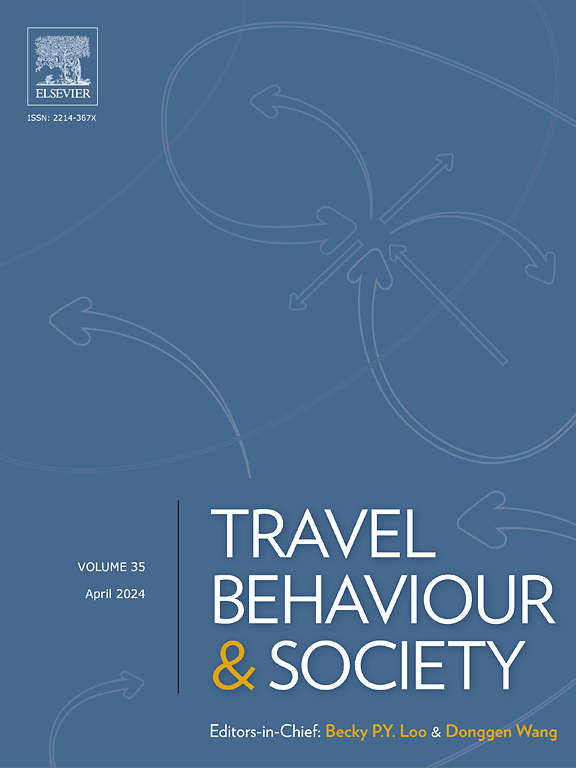通过在家办公(WFH)实现可持续的城市交通转型
IF 5.1
2区 工程技术
Q1 TRANSPORTATION
引用次数: 0
摘要
本文报告了一项研究,旨在了解 "在家办公"(WFH)如何通过减少出行来协助向更可持续的城市交通过渡。通过对西澳大利亚大珀斯地区的案例研究,报告了在 2021 年至 2022 年 COVID-19 大流行期间开展的实证研究。数据来源于对雇主的访谈、三波雇员调查以及交通和出行趋势。根据这些数据,还利用交通模型对一系列情景下城市交通转型的经济影响进行了估算。研究结果证实,与大流行前的水平相比,每周至少有一部分时间全职在家的工人比例发生了显著变化,通勤交通量大幅减少,从而带来了经济效益,而更高的灵活性则大大提高了生活满意度。这些因素表明,全职家庭能够提高城市的宜居性,交通政策应包括鼓励全职家庭的战略,以减少出行需求。本文章由计算机程序翻译,如有差异,请以英文原文为准。
Sustainable urban mobility transitions through working from home (WFH)
This paper reports research aimed at understanding how working-from-home (WFH) can assist in a transition towards more sustainable urban mobility through travel reduction. A case study of Greater Perth, Western Australia reports empirical research conducted between 2021 and 2022 during the COVID-19 pandemic. Data is drawn from interviews with employers, a three-wave survey of employees, and transport and travel trends. Drawing on the data, the economic impact of this urban mobility transition is also estimated for a range of scenarios using transport modelling. The findings confirm a significant shift in the proportion of workers WFH for at least part of the week compared to pre-pandemic levels, a substantial reduction in commuting traffic with subsequent financial benefits, and a substantial improvement in life satisfaction provided by higher flexibility. These factors suggest that WFH can improve the liveability of cities and that transport policy should include strategies to encourage WFH to reduce travel demand.
求助全文
通过发布文献求助,成功后即可免费获取论文全文。
去求助
来源期刊

Travel Behaviour and Society
TRANSPORTATION-
CiteScore
9.80
自引率
7.70%
发文量
109
期刊介绍:
Travel Behaviour and Society is an interdisciplinary journal publishing high-quality original papers which report leading edge research in theories, methodologies and applications concerning transportation issues and challenges which involve the social and spatial dimensions. In particular, it provides a discussion forum for major research in travel behaviour, transportation infrastructure, transportation and environmental issues, mobility and social sustainability, transportation geographic information systems (TGIS), transportation and quality of life, transportation data collection and analysis, etc.
 求助内容:
求助内容: 应助结果提醒方式:
应助结果提醒方式:


